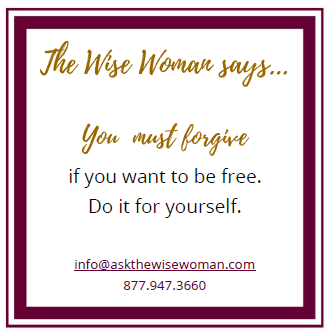How to Free Yourself from Emotional Burdens
Sep 10, 2025
Forgiveness—what a loaded word! It carries the weight of emotions, past experiences, and sometimes even confusion. Are we forgiving ourselves? Forgiving others? And what exactly are we forgiving them for? These are questions that can leave us stuck in an emotional loop, unable to move forward.
Like most situations, there are two sides to every story. And over time, I’ve come to realize that when I feel the need to forgive someone, I also need to ask for their forgiveness. Not necessarily because I’ve wronged them in an obvious way, but because my own perspective, my own interpretation of events, might have added to the misunderstanding or pain. Forgiveness, to me, is a two-way street.
The Evolution of Forgiveness
I didn’t always see it this way. There was a time when forgiveness felt like something I had to offer grudgingly—like a gift given under obligation rather than from a place of genuine understanding. But the older I get, the more accepting I am of human nature. I see more clearly that we are all navigating life’s challenges with our own set of experiences, wounds, and blind spots.
People aren’t perfect. They make mistakes. They say things they don’t mean. They act out of fear, insecurity, or simply a lack of awareness. And I have been guilty of the same. When I reflect on the times I’ve been hurt, I can also recognize moments when I may have unintentionally hurt others.
This realization has changed my perspective on forgiveness. It is no longer about deciding whether someone "deserves" it—it’s about whether I am ready to release the pain that keeps me tethered to a past I cannot change.
Forgiveness as a Gift to Yourself
One of the most profound lessons I’ve learned is that forgiveness isn’t about condoning hurtful actions. It’s not about saying that what happened was okay. Instead, it’s about freeing yourself from the emotional weight of holding onto resentment.
Even if the other person never acknowledges their wrongdoing or never offers an apology, choosing to forgive is a way of taking back your own peace. Otherwise, we carry the weight of that experience long after the moment has passed, allowing it to shape our present and future in ways that do not serve us.
The Two-Way Street of Forgiveness
We often think of forgiveness as something we extend to others, but it’s just as important to reflect inward. Have I been holding onto guilt or shame? Have I been unkind to myself for mistakes I’ve made?
Forgiving ourselves is often harder than forgiving others. We replay our missteps, judge ourselves harshly, and sometimes believe we don’t "deserve" to be forgiven. But self-compassion is a necessary part of healing. Just as we recognize that others are human and make mistakes, we must extend that same grace to ourselves.
At the same time, when I seek to forgive others, I also ask them—either in my heart or directly—for their forgiveness as well. Not just for what I may have done, but for the way I might have misinterpreted their actions, made assumptions, or reacted out of my own hurt. This reciprocity in forgiveness creates space for deeper healing.
How to Begin the Process of Forgiveness
If you are struggling with forgiveness—whether toward yourself or someone else—consider these steps:
- Acknowledge Your Feelings
Suppressing emotions doesn’t make them disappear. Allow yourself to feel hurt, anger, or disappointment. Name the emotions so you can begin to process them. - See the Bigger Picture
Ask yourself: What else might have been going on with this person? What past wounds or fears could have influenced their actions? This doesn’t excuse their behavior, but it can help soften the intensity of your pain. - Take Responsibility for Your Part
If appropriate, reflect on how you may have contributed to the situation. Did you assume the worst? React harshly? Hold onto a narrative that might not be entirely true? Recognizing this can help shift your perspective. - Choose to Let Go
Letting go doesn’t mean forgetting or pretending nothing happened. It means making a conscious decision to release the hold that pain has over you. This may take time, but the choice to start is powerful. - Practice Self-Compassion
If you are struggling to forgive yourself, imagine how you would speak to a dear friend in the same situation. Would you offer them kindness and understanding? Extend that same grace to yourself. - Express Forgiveness in Your Own Way
Forgiveness doesn’t always require a face-to-face conversation. You can write a letter (even if you never send it), say a silent prayer, or simply set the intention to release resentment. The act of forgiving is for you, not necessarily for them. - Embrace the Freedom of Letting Go
Notice how much lighter you feel when you stop carrying the weight of past hurts. Holding onto pain only keeps you tied to it—releasing it allows you to move forward with a sense of peace.
The Wise Woman says . . .
At the heart of forgiveness is the understanding that we are all doing the best we can with what we know at the time. People will disappoint us. We will disappoint ourselves. But holding onto resentment only prolongs our suffering. So, whether someone accepts your forgiveness or not, whether they offer you an apology or not, choose to forgive anyway. Not for them, but for you. Because you deserve to be free from the burden of pain. And that is the true gift of forgiveness.

